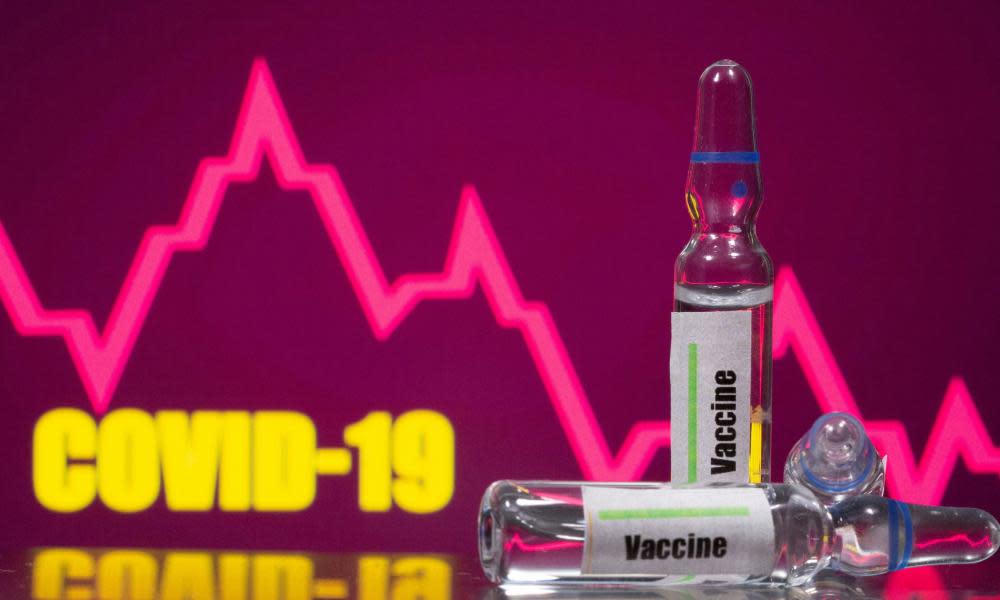FTSE 100 records best month since 1989 after Covid vaccine hopes

The FTSE 100 has recorded its best month since 1989, boosted by growing optimism that an early coronavirus vaccine can trigger a faster than expected economic recovery from the Covid-19 recession.
The index of leading UK company shares has risen in value by more than £180bn, or 12.4%, in November, the strongest monthly performance since January 1989 when the market gained by 14.4%.
However, the FTSE 100 had been on course to surpass this record early on Monday, before a wave of heavy selling erased gains worth about £30bn, falling by 101 points to end the day at 6,226. The index, which tracks the shares of the UK’s biggest companies, had started the month at 5,577.
The retreat late on Monday ended the month on a note of caution. Analysts said financial market investors were taking an opportunity to sell stocks to crystallise gains made over the past month. There are also fears that there could still be substantial economic damage during the second Covid wave before vaccines can be made widely available.
Nonetheless, the FTSE has performed strongly this month, alongside other financial markets around the world. Stocks have surged in November on the back of pharmaceutical companies announcing promising results from coronavirus vaccine trials, setting the stage for a rapid economic rebound next year.
Joe Biden’s defeat of Donald Trump in the US election has also fuelled the record-breaking rally, amid hopes for an additional injection of financial support for the world’s largest economy by a Democratic White House.
Justin Onuekwusi, the head of retail multi-asset funds at Legal and General Investment Management, said: “We have had lots of positive announcements around a vaccine, and I do think that brings you back closer to normality than you otherwise would’ve been. That means company earnings are more likely to recover faster than previously expected and that’s a big boost for markets.
“Clearly, there are still a lot of risks out there. But we’re cautiously optimistic that markets will continue to do well in the medium-term.”
Stock markets across Europe have rallied, while Wall Street has reached record highs, with the US Dow Jones industrial average breaking through 30,000 points for the first time earlier this month. The price of oil has also risen by almost $10 a barrel in the past month, as investors bet that a faster economic recovery will boost energy demand.
The FTSE 100 remains more than 1,000 points down from the start of the year in a reflection of the severe damage to the economy from Covid-19. Concern is also mounting among investors because time is running out to strike a post-Brexit trade deal before the transition period expires at the end of December.
Richard Hunter, the head of markets at the financial firm Interactive Investor, said: “Investors are hoping that a last-gasp compromise will prevent the economic pain of a no-deal to both parties, and for the UK this has particular ramifications, given the parlous state of the economy both now and post-pandemic.”
Britain’s economy has sunk into the deepest recession in more than three centuries, with the coronavirus second wave and renewed lockdown restrictions expected to weigh down growth in the final three months of the year.
Analysts said the easing of restrictions this week would provide a boost to the high street in the vital Christmas shopping period. However, Covid infections remain high and there are fears of a third wave early next year before a vaccine can be fully deployed.

 Yahoo Movies
Yahoo Movies 
